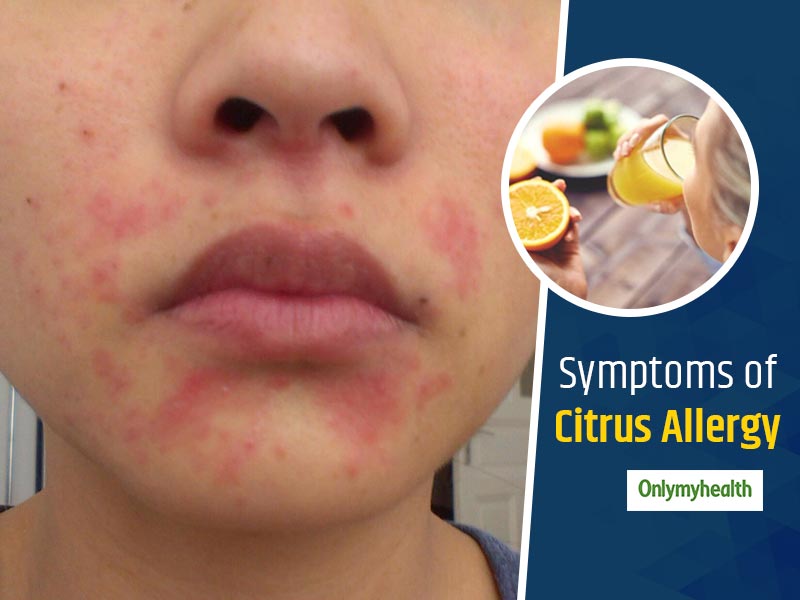
Citrus fruits are said to be better than other fruits as do a lot of good to our health. Citrus fruits are rich in Vitamin C and antioxidants which helps in fighting viral infections and seasonal illnesses. Oranges, lemons, limes, all boost immunity to prevent the attack of viruses and bacteria. Also, citrus fruits have high water content which helps in hydrating the body. But some people are allergic to them. The term given to this allergy is ‘Citrus Allergy’. Upon consuming any citrus ingredient they show allergic symptoms. This allergy is rare but very much there. Read on to know all about citrus allergy.
Table of Content:-
Symptoms of Citrus Allergy
If you suffer a skin rash or irritation in the throat after eating citrus fruit or just its essence, you might be allergic to citrus. Here are some signs and symptoms of citrus allergy that can help find out if you are allergic or not:
- Intense itching and tingling sensation on the lips, tongue and throat after eating citrus fruit
- Swelling and reddening of gums and lips
- Skin dermatitis symptoms after touching or coming in contact with citrusy juice or peel
- Itching, burning skin with redness
- Swelling and blisters on the skin after contacting allergens

- Life-threatening anaphylaxis symptoms
- Swollen mouth and throat
- Flushed skin
- Hives
- Asthma
- Vomiting, nausea and diarrhoea
- Low blood pressure
You must seek medical attention if you see or experience any of the above-mentioned symptoms especially anaphylactic symptoms.
Also Read: 9 Foods That Have More Vitamin C and Antioxidants Than Orange
Causes of Citrus Allergy
An allergy is triggered by allergens that your body mistakes to be hostile. It defends against these allergens which causes an allergic reaction. Generally, people who are allergic to pollen suffer from citrus allergy. Whenever they touch, smell or taste anything that has citrus acid in it, their body reacts to it. However, citric acid that is present in citrus fruits don’t trigger this allergy as it is not an allergen. It is actually a flavouring agent that gives the tart or citrusy flavour to the foods. While most allergies are mild, in some cases, it may cause anaphylaxis which is a serious condition and require immediate medical aid.
Here are some triggers or causes of citrus allergy.

Cross-reactivity
Most of the citrus allergies are caused by pollen allergies which are due to cross-reactivity. This so happens that citrus fruits and pollen have some protein in common. This protein causes allergy in some people. When a person with pollen allergy consumes a citrus fruit, the body may mistake it to be pollen due to the shared protein and react. People who are allergic to pollen and grass are also sensitive to citrus fruits.
Also Read: Can Infants Be Allergic To Breast Milk? Let's Find Out About Breast Milk Allergy
Limonene allergy
This is the allergy caused by a chemical found in citrus fruit peels. Person with this allergy shows symptoms of contact dermatitis after touching a citrus peel. But surprisingly, they can consume fresh lime juice.

Foods to avoid when you have citrus allergy
- Maintain distance from citrus fruits, peels and essence if you are have citrus allergy. Follow these tips:
- Avoid citrus fruit juices such as orange juice, lemon juice or lime extract.
- Packaged fruit juices may have some percent of citrus extracts, check the label before consumption.
- Avoid citrus zest like orange and lemon zest. They can trigger allergy too.
Read More Articles In Other Diseases
How we keep this article up to date:
We work with experts and keep a close eye on the latest in health and wellness. Whenever there is a new research or helpful information, we update our articles with accurate and useful advice.
Current Version